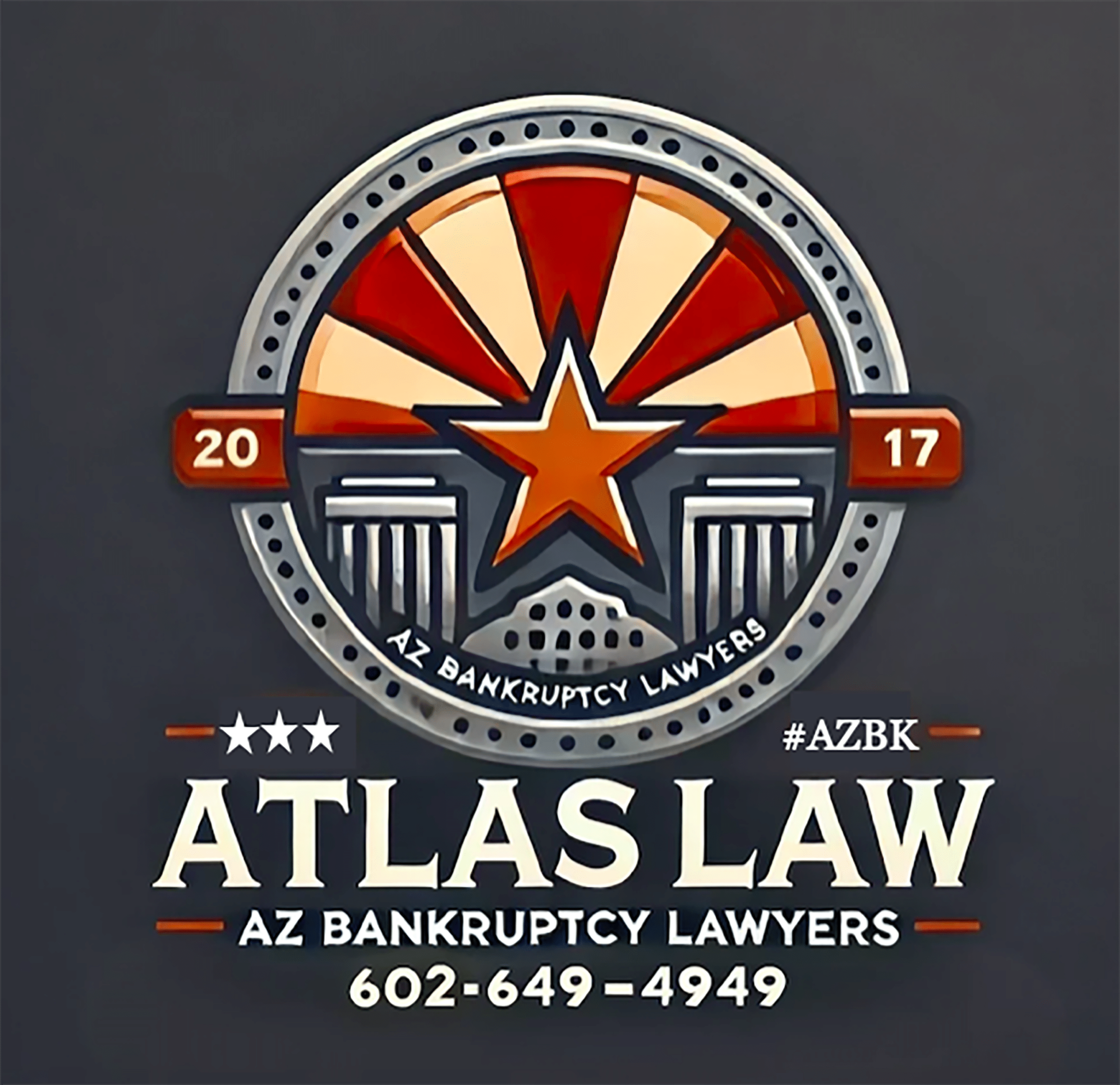
When facing the life-altering events of bankruptcy and divorce simultaneously, it’s easy to feel overwhelmed by the emotional and financial challenges. Unfortunately, these two often go hand in hand, and the stress of dealing with both can seem insurmountable. If you find yourself in this situation in Phoenix, Arizona, understanding how bankruptcy and divorce intersect and the options available can help you make informed decisions that ease your financial burden.
Understanding the Connection Between Bankruptcy and Divorce
Divorce is one of the most common life events that lead individuals into financial hardship, often due to the splitting of assets, debts, and the added expenses of maintaining separate households. At the same time, bankruptcy can add another layer of complexity, as it’s a legal process aimed at providing relief from overwhelming debt. When you combine these two, there are many factors to consider, especially regarding timing, legal proceedings, and how they affect your finances.
How Divorce Can Lead to Bankruptcy
Divorce often results in a significant reduction in household income while expenses either stay the same or increase. This can make it difficult for one or both parties to keep up with existing debt obligations, leading to a greater risk of bankruptcy. Common reasons why divorce may lead to bankruptcy include:
- Division of Debt: Divorce courts will divide marital debt between spouses. If you’re left with a substantial portion of this debt and don’t have the means to pay it off, bankruptcy may become a necessity.
- Loss of Income: Going from a dual-income household to a single income can be financially straining, especially if one spouse was the primary breadwinner.
- Legal Fees and Alimony: The expenses of hiring attorneys, court fees, and potential alimony or child support payments can quickly add up, creating financial strain.
How Bankruptcy Can Complicate Divorce
If bankruptcy is filed before or during divorce proceedings, it can impact the division of assets and debts, as well as alimony and child support payments. Here’s how:
- Automatic Stay: When a bankruptcy case is filed, an automatic stay goes into effect, temporarily halting all collection activities, including divorce proceedings related to dividing assets and debts. This can delay the divorce process.
- Division of Property: Bankruptcy courts have jurisdiction over your property, which means that marital assets will be managed through bankruptcy rather than divorce courts.
- Debt Discharge: If you discharge debts through bankruptcy, it can alter the amount of debt that remains for division during your divorce.
Chapter 7 vs. Chapter 13 Bankruptcy During Divorce
 The two most common types of bankruptcy for individuals are Chapter 7 and Chapter 13, each with different processes and implications for those going through a divorce.
The two most common types of bankruptcy for individuals are Chapter 7 and Chapter 13, each with different processes and implications for those going through a divorce.
Chapter 7 Bankruptcy
Chapter 7 bankruptcy, often called “liquidation bankruptcy,” allows individuals to discharge most unsecured debts, such as credit card debt and medical bills, within a few months. Here’s how Chapter 7 bankruptcy interacts with divorce:
- Quick Resolution: Chapter 7 bankruptcy typically takes 3-4 months to complete, which means it may be resolved before the divorce proceedings are finalized.
- Simplified Debt Division: Since Chapter 7 eliminates unsecured debts, it simplifies the division of assets and liabilities in a divorce.
- Impact on Property: If you have a significant amount of non-exempt property, it may be liquidated to pay off creditors, which could affect the assets available for division in the divorce.
Ideal Scenario for Filing Chapter 7: Chapter 7 may be a good option if you have limited assets and want a quick discharge of debts before finalizing your divorce.
Chapter 13 Bankruptcy
Chapter 13 bankruptcy, or “reorganization bankruptcy,” allows individuals to repay their debts through a court-approved repayment plan over 3 to 5 years. Here’s how Chapter 13 bankruptcy can impact divorce:
- Longer Process: Chapter 13 bankruptcy takes much longer to complete than Chapter 7, which can prolong divorce proceedings or complicate them if filed during the repayment plan.
- Asset Protection: Chapter 13 allows you to keep your assets, which may benefit couples with substantial property or assets they want to protect during a divorce.
- Ongoing Payment Obligations: The repayment plan could impact alimony or child support payments, especially if one spouse’s financial circumstances change due to divorce.
Ideal Scenario for Filing Chapter 13: Chapter 13 may be suitable if you want to protect assets or if you have a steady income to make payments over an extended period.
Should You File Bankruptcy Before or After Divorce?
Deciding whether to file for bankruptcy before or after divorce is crucial and depends on your specific circumstances. Here’s a breakdown of both options:
Filing Bankruptcy Before Divorce
- Joint Filing: If you and your spouse are on good terms and have significant shared debt, filing jointly can eliminate your combined debt and simplify the division of assets during divorce.
- Save on Costs: A joint bankruptcy filing is typically less expensive than two individual filings.
- Simplicity in Divorce Proceedings: By eliminating debt before the divorce, you streamline the division of assets and liabilities.
Ideal For: Couples who can work together and want to reduce legal costs.
Filing Bankruptcy After Divorce
- Separate Filings: If you and your spouse have contentious or complex financial situations, filing separately after divorce allows you to manage your debt independently.
- Avoid Automatic Stay Delays: If you’re eager to finalize your divorce quickly, waiting until afterward can prevent delays caused by the bankruptcy process.
Ideal For: Couples with complicated finances or who want to handle debt independently.
Choosing the Right Legal Representation: The Role of Alison Briggs
 When navigating both bankruptcy and divorce, having an attorney who understands both areas of law is crucial for achieving the best outcome. This is where Alison Briggs comes in. As an established bankruptcy attorney in Arizona and a practicing family lawyer, Alison’s unique blend of expertise makes her an ideal choice for individuals facing the challenges of bankruptcy and divorce.
When navigating both bankruptcy and divorce, having an attorney who understands both areas of law is crucial for achieving the best outcome. This is where Alison Briggs comes in. As an established bankruptcy attorney in Arizona and a practicing family lawyer, Alison’s unique blend of expertise makes her an ideal choice for individuals facing the challenges of bankruptcy and divorce.
Why Choose Arizona Attorney, Alison Briggs?
- Dual Expertise: Alison Briggs is both a seasoned bankruptcy attorney and a knowledgeable family lawyer, meaning she can guide you through the complexities of both processes simultaneously.
- Tailored Guidance: She understands the nuances of Arizona’s bankruptcy and family laws, providing personalized advice based on your specific situation.
- Experienced Representation: As the lead bankruptcy attorney at Atlas Law, LLC in Phoenix, Alison has a proven track record of helping clients successfully navigate the financial challenges that come with bankruptcy and divorce.
If you’re considering filing for Chapter 7 or Chapter 13 bankruptcy in Arizona, Alison Briggs is here to help. With her comprehensive understanding of both legal areas, she’ll guide you through the process with empathy, expertise, and a commitment to helping you achieve the best possible outcome.
Frequently Asked Questions About Bankruptcy and Divorce in Phoenix
1. Can filing for bankruptcy eliminate alimony or child support obligations?
No, bankruptcy does not eliminate alimony or child support obligations. These payments are considered non-dischargeable debts and must still be paid, regardless of the bankruptcy filing.
2. Will I lose my home if I file for bankruptcy during my divorce?
It depends on your specific situation and the type of bankruptcy you file. In Chapter 7, non-exempt assets, including your home, may be subject to liquidation. However, Chapter 13 allows you to keep your home if you continue to make payments under the repayment plan.
3. Can my spouse’s bankruptcy filing affect my credit score during divorce?
No, your spouse’s bankruptcy filing will not directly impact your credit score. However, if you have joint debts, the bankruptcy could affect your responsibility for those debts.
Contact Atlas Law, LLC Today
If you’re struggling with bankruptcy and divorce in Phoenix, having the right legal support can make all the difference. Alison Briggs and the team at Atlas Law, LLC are here to provide the guidance you need to navigate these challenging circumstances. Our experienced AZ bankruptcy team will be with you every step of the way as you seek debt relief in Maricopa, Pima, and Pinal counties in Arizona.
Call us today at (602) 649-4949 for a free consultation, or visit our website at atlaslawarizona.com




